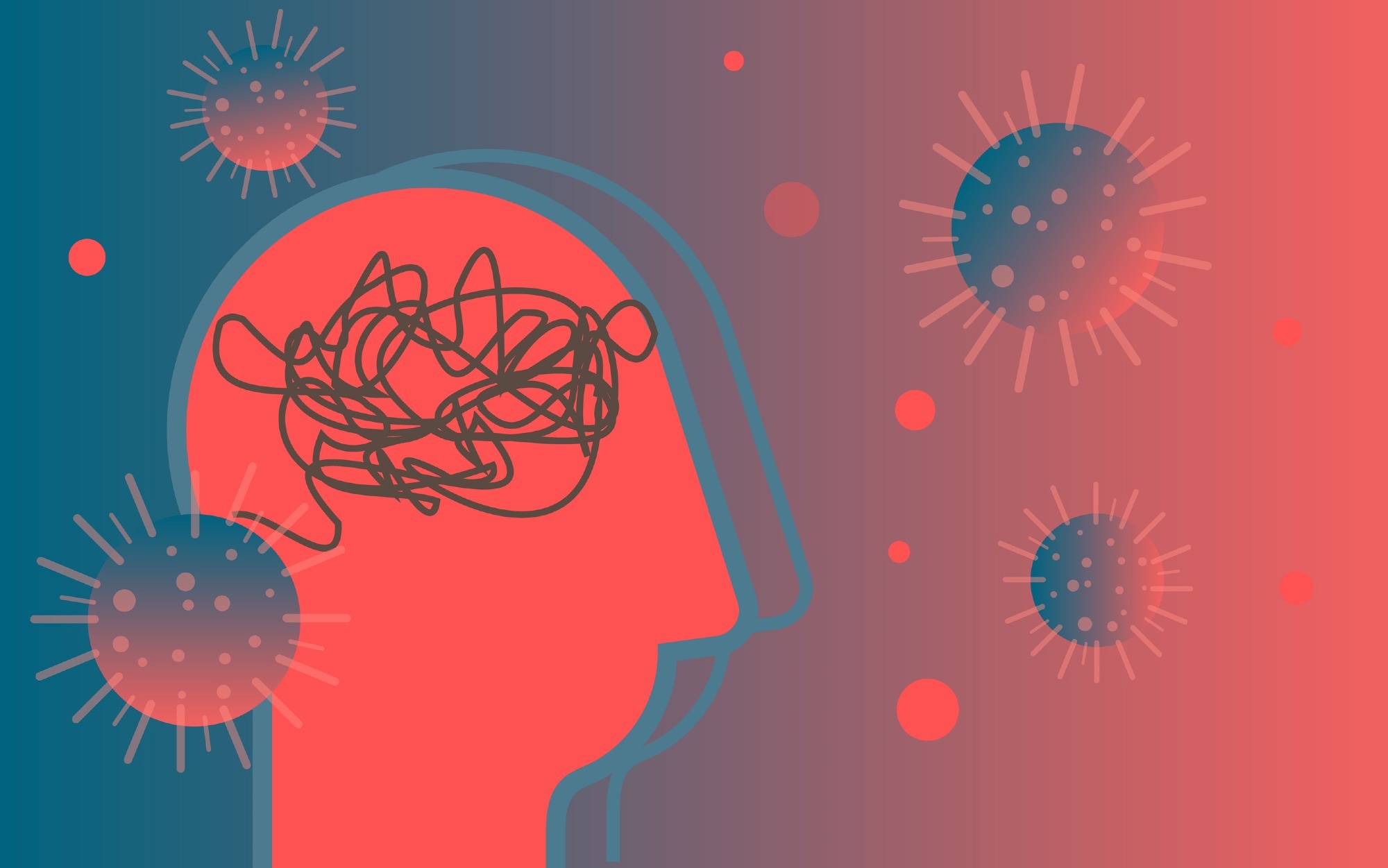
[ad_1]
In a current research printed within the journal Nature Human Behaviour, researchers assessed the long-term psychiatric results and vaccination’s position on psychological well being in coronavirus illness 2019 (COVID-19) survivors utilizing United Kingdom (UK) Biobank information.
 Study: Long-term risk of psychiatric disorder and psychotropic prescription after SARS-CoV-2 infection among UK general population. Image Credit: DesignPrax / Shutterstock
Study: Long-term risk of psychiatric disorder and psychotropic prescription after SARS-CoV-2 infection among UK general population. Image Credit: DesignPrax / Shutterstock
Background
To date, the worldwide well being disaster brought on by extreme acute respiratory syndrome coronavirus 2 (SARS‑CoV‑2) has resulted in over 774 million instances and seven million deaths. The virus impacts the respiratory system and has vital implications for metabolic, renal, and cardiovascular well being throughout and post-infection. Additionally, a rise in neurological and psychiatric issues amongst each extreme and gentle COVID-19 instances has been documented. However, present research, primarily primarily based on digital well being data (EHR), face limitations as a result of potential biases and the dearth of complete information on elements like vaccination. The effectiveness of vaccination in lowering long-term psychiatric problems stays unclear, highlighting the necessity for additional analysis to grasp COVID-19’s prolonged psychological well being impacts and the protecting advantages of vaccination.
About the research
The current research utilized information from the UK Biobank, with members offering written knowledgeable consent. The UK Biobank recruited over 500,000 people aged 40-70 from the UK, gathering in depth baseline information and following members via linkage to well being data. SARS-CoV-2 an infection information got here from Public Health England’s microbiology database, whereas data on psychiatric diagnoses and prescriptions was sourced from well being statistics and prescription databases.
Participants have been categorized into completely different teams primarily based on their SARS-CoV-2 an infection standing and check outcomes. The an infection group included these with a constructive polymerase chain response (PCR) check for SARS-CoV-2, whereas up to date controls have been people with no proof of an infection. A historic management group offered a pre-pandemic comparability, and an extra group included members with destructive SARS-CoV-2 checks. The research targeted on psychiatric outcomes, figuring out issues and prescriptions for psychotropic drugs. Mental well being outcomes have been analyzed each as new incidents and as a part of ongoing or recurrent circumstances, adjusting for a spread of covariates to account for potential confounding elements.
Statistical analyses employed propensity rating weighting and matching to steadiness baseline traits throughout teams, utilizing Cox proportional hazards regression fashions to estimate dangers and incidence charges of psychological well being circumstances. Subgroup analyses explored the influence of demographic elements and COVID-19-related contextual elements, together with vaccination standing and testing settings, on psychiatric outcomes. Sensitivity analyses and the usage of constructive and destructive final result controls aimed to validate the research’s design and findings, assessing the robustness of the outcomes and the potential for bias.
Study outcomes
In the research, researchers targeted on 26,101 members who had examined constructive for SARS-CoV-2, in contrast in opposition to 380,337 up to date controls and 390,621 historic controls. The research tracked the incidence of psychiatric diagnoses and psychotropic prescription utilization over a median follow-up interval of round a yr. Initial analyses revealed vital demographic and well being disparities between the COVID-19 group and the up to date controls, which have been later balanced via weighting methods to make sure correct comparisons.
The research’s findings have been alarming, indicating a heightened danger of varied psychiatric issues amongst COVID-19 survivors, together with psychotic, temper, and anxiousness issues, with notable will increase in prescriptions for antipsychotics, antidepressants, benzodiazepines, temper stabilizers, and opioids. Particularly, temper issues equivalent to depressive episodes and anxiousness issues like panic dysfunction, generalized anxiousness dysfunction, and post-traumatic stress dysfunction have been extra prevalent amongst those that had contracted COVID-19. Substance use issues confirmed a marginal improve, with a selected rise in alcohol use dysfunction, whereas the danger of sleep issues additionally noticed an uptick.
These developments endured throughout a number of subgroup analyses, affirming the consistency of the elevated danger of psychiatric outcomes throughout completely different demographic segments. When delving into the main points of an infection settings and vaccination statuses, the analysis highlighted a fancy image the place non-breakthrough infections (these occurring in unvaccinated or partially vaccinated people) introduced a better danger for each new and recurring psychological well being points. Interestingly, breakthrough infections didn’t considerably alter the danger profile for psychiatric diagnoses, though they did correlate with an elevated chance of psychotropic remedy prescriptions.
Further comparisons with the historic management group strengthened the research’s preliminary findings, showcasing a broad improve in psychological well being dangers for COVID-19 survivors. However, when the contaminated cohort was matched in opposition to a test-negative management group, the outcomes grew to become extra delicate, with no vital variations within the danger for psychotropic prescriptions, hinting on the complicated interaction between COVID-19, psychological well being, and healthcare behaviors.
The research’s strong methodology prolonged to the appliance of constructive and destructive final result controls, validating its findings in opposition to recognized long-COVID signs equivalent to fatigue and dyspnoea and making certain no vital associations have been discovered with unrelated well being outcomes like pores and skin neoplasms and follicular cysts. Sensitivity analyses additional solidified the first conclusions, demonstrating the heightened danger of psychiatric issues in COVID-19 survivors, notably these recognized in a hospital setting, and underscored the pressing want for focused psychological well being interventions for this susceptible inhabitants.
Journal reference:
- Wang, Y., Su, B., Xie, J. et al. Long-term danger of psychiatric dysfunction and psychotropic prescription after SARS-CoV-2 an infection amongst UK normal inhabitants. Nat Hum Behav (2024), DOI- 10.1038/s41562-024-01853-4, https://www.nature.com/articles/s41562-024-01853-4
[adinserter block=”4″]
[ad_2]
Source link